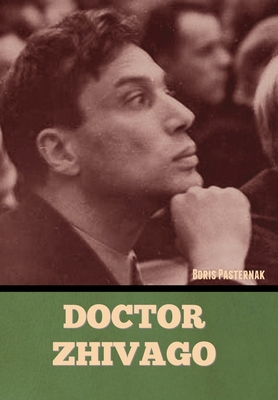Doctor Zhivago

Doctor Zhivago
Owing to the author's independent-minded stance on the October Revolution, Doctor Zhivago was refused publication in the USSR. At the instigation of Giangiacomo Feltrinelli, the manuscript was smuggled to Milan and published in 1957. Pasternak was awarded the Nobel Prize for Literature the following year, an event that embarrassed and enraged the Communist Party of the Soviet Union.
The novel was made into a film by David Lean in 1965, and since then has twice been adapted for television, most recently as a miniseries for Russian TV in 2006. The novel Doctor Zhivago has been part of the Russian school curriculum since 2003, where it is read in 11th grade.
Edmund Wilson wrote of the novel: "Doctor Zhivago will, I believe, come to stand as one of the great events in man's literary and moral history". V. S. Pritchett wrote in the New Statesman that the novel is "[t]he first work of genius to come out of Russia since the revolution." When the novel came out in Italian, Anders Österling, the then permanent secretary of the Swedish Academy which awards the Nobel Prize in Literature, wrote in January 1958: "A strong patriotic accent comes through, but with no trace of empty propaganda... With its abundant documentation, its intense local color and its psychological frankness, this work bears convincing witness to the fact that the creative faculty in literature is in no sense extinct in Russia. It is hard to believe that the Soviet authorities might seriously envisage forbidding its publication in the land of its birth." Some literary critics "found that there was no real plot to the novel, that its chronology was confused, that the main characters were oddly effaced, that the author relied far too much on contrived coincidences." Vladimir Nabokov, who had celebrated Pasternak's books of poetry as works of "pure, unbridled genius", however, considered the novel to be "a sorry thing, clumsy, trite and melodramatic, with stock situations, voluptuous lawyers, unbelievable girls, romantic robbers and trite coincidences." On the other hand, some critics praised it for being things that, in the opinion of translator Richard Pevear, it was never meant to be: a moving love story, or a lyrical biography of a poet in which the indi
PRP: 294.01 Lei
Acesta este Prețul Recomandat de Producător. Prețul de vânzare al produsului este afișat mai jos.
264.61Lei
264.61Lei
294.01 LeiLivrare in 2-4 saptamani
Descrierea produsului
Owing to the author's independent-minded stance on the October Revolution, Doctor Zhivago was refused publication in the USSR. At the instigation of Giangiacomo Feltrinelli, the manuscript was smuggled to Milan and published in 1957. Pasternak was awarded the Nobel Prize for Literature the following year, an event that embarrassed and enraged the Communist Party of the Soviet Union.
The novel was made into a film by David Lean in 1965, and since then has twice been adapted for television, most recently as a miniseries for Russian TV in 2006. The novel Doctor Zhivago has been part of the Russian school curriculum since 2003, where it is read in 11th grade.
Edmund Wilson wrote of the novel: "Doctor Zhivago will, I believe, come to stand as one of the great events in man's literary and moral history". V. S. Pritchett wrote in the New Statesman that the novel is "[t]he first work of genius to come out of Russia since the revolution." When the novel came out in Italian, Anders Österling, the then permanent secretary of the Swedish Academy which awards the Nobel Prize in Literature, wrote in January 1958: "A strong patriotic accent comes through, but with no trace of empty propaganda... With its abundant documentation, its intense local color and its psychological frankness, this work bears convincing witness to the fact that the creative faculty in literature is in no sense extinct in Russia. It is hard to believe that the Soviet authorities might seriously envisage forbidding its publication in the land of its birth." Some literary critics "found that there was no real plot to the novel, that its chronology was confused, that the main characters were oddly effaced, that the author relied far too much on contrived coincidences." Vladimir Nabokov, who had celebrated Pasternak's books of poetry as works of "pure, unbridled genius", however, considered the novel to be "a sorry thing, clumsy, trite and melodramatic, with stock situations, voluptuous lawyers, unbelievable girls, romantic robbers and trite coincidences." On the other hand, some critics praised it for being things that, in the opinion of translator Richard Pevear, it was never meant to be: a moving love story, or a lyrical biography of a poet in which the indi
Detaliile produsului










